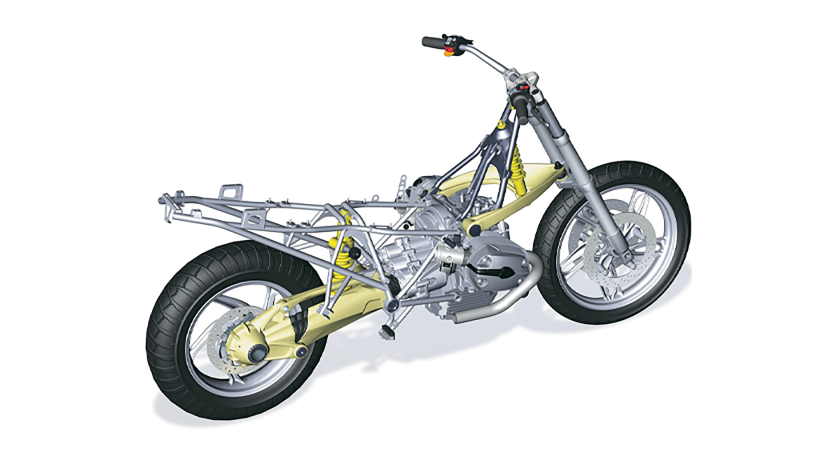Precision Round Tubes Made from Mild Steel for Various Applications
Dec . 07, 2024 08:00
Mild Steel Precision Round Tubes An Overview
Mild steel precision round tubes are crucial components in various industries due to their versatility, strength, and cost-effectiveness. These tubes, made from low carbon steel, possess admirable mechanical properties, making them suitable for numerous applications ranging from construction to automotive engineering. This article delves into the characteristics, manufacturing processes, applications, and benefits of mild steel precision round tubes.
Characteristics of Mild Steel Precision Round Tubes
Mild steel, often referred to as low carbon steel, typically contains a carbon content of around 0.05% to 0.25%. This low carbon content gives mild steel its malleability and ductility, allowing it to withstand significant stresses without breaking. Precision round tubes made from mild steel are also characterized by their uniformity in thickness and diameter, which is essential for applications that require exact specifications.
The mechanical properties of mild steel include excellent tensile strength, good weldability, and the ability to be easily machined and fabricated. Moreover, mild steel precision round tubes exhibit good corrosion resistance when properly treated, making them suitable for a wide range of environmental conditions. Their finish can be improved with processes such as galvanization, which adds an extra layer of protection against rust.
Manufacturing Process
The manufacturing of mild steel precision round tubes involves several steps. The process typically begins with the selection of high-quality steel billets or coils. These raw materials are then heated and subjected to processes such as extrusion, rolling, or piercing to form the round shape.
Post-forming, the tubes undergo several finishing processes. These may include cold drawing, where the tubes are pulled through a die to achieve precise dimensions and enhanced surface finish. Additionally, processes like heat treatment may be employed to refine the mechanical properties of the tubes, ensuring they meet the specific requirements of various applications.
Quality control is an integral part of the manufacturing process. Each batch of tubes undergoes rigorous testing to ensure they meet industry standards for dimensional accuracy, mechanical strength, and surface finish. Non-destructive testing methods such as ultrasonic testing and eddy current testing may be employed to check for internal and surface defects.
Applications
mild steel precision round tube
Mild steel precision round tubes have a wide range of applications across various sectors. In the construction industry, they are used for structural purposes, such as columns, beams, and scaffolding. Their strength-to-weight ratio makes them ideal for these applications, providing robust support while minimizing material usage.
In the automotive sector, mild steel tubes are often utilized in the manufacturing of chassis, exhaust systems, and various structural components. Their excellent weldability allows for easy integration into various assemblies, contributing to the overall performance and safety of vehicles.
Additionally, these tubes find use in furniture production, machinery, and pipelines. Their versatility extends to both residential and industrial applications, where they can be found in everything from handrails to manufacturing equipment.
Benefits of Mild Steel Precision Round Tubes
One of the main advantages of using mild steel precision round tubes is their affordability. Compared to other materials like stainless steel or aluminum, mild steel offers a cost-effective solution without compromising quality. This price advantage makes them an excellent choice for large-scale projects where budget constraints are a primary concern.
Moreover, the ease of fabrication and versatility of mild steel allows manufacturers to create custom solutions tailored to specific needs. Whether for intricate designs or high-stress applications, mild steel tubes can be tailored to meet stringent requirements.
Finally, the sustainability aspect of mild steel cannot be overlooked. Steel is one of the most recycled materials globally, contributing to environmental conservation. The use of recycled steel in the manufacturing of precision round tubes helps reduce the carbon footprint associated with new material production.
Conclusion
Mild steel precision round tubes serve as fundamental components in an array of industries due to their robust characteristics, cost-effectiveness, and versatility. From construction to automotive engineering, their applications are vast, making them a staple in modern manufacturing. As industries continue to evolve, the demand for these precision-engineered tubes is likely to grow, reaffirming their importance in future innovations. Whether for structural support or intricate designs, mild steel precision round tubes remain a reliable choice for engineers and manufacturers alike.
 Afrikaans
Afrikaans  Albanian
Albanian  Amharic
Amharic  Arabic
Arabic  Armenian
Armenian  Azerbaijani
Azerbaijani  Basque
Basque  Belarusian
Belarusian  Bengali
Bengali  Bosnian
Bosnian  Bulgarian
Bulgarian  Catalan
Catalan  Cebuano
Cebuano  Corsican
Corsican  Croatian
Croatian  Czech
Czech  Danish
Danish  Dutch
Dutch  English
English  Esperanto
Esperanto  Estonian
Estonian  Finnish
Finnish  French
French  Frisian
Frisian  Galician
Galician  Georgian
Georgian  German
German  Greek
Greek  Gujarati
Gujarati  Haitian Creole
Haitian Creole  hausa
hausa  hawaiian
hawaiian  Hebrew
Hebrew  Hindi
Hindi  Miao
Miao  Hungarian
Hungarian  Icelandic
Icelandic  igbo
igbo  Indonesian
Indonesian  irish
irish  Italian
Italian  Japanese
Japanese  Javanese
Javanese  Kannada
Kannada  kazakh
kazakh  Khmer
Khmer  Rwandese
Rwandese  Korean
Korean  Kurdish
Kurdish  Kyrgyz
Kyrgyz  Lao
Lao  Latin
Latin  Latvian
Latvian  Lithuanian
Lithuanian  Luxembourgish
Luxembourgish  Macedonian
Macedonian  Malgashi
Malgashi  Malay
Malay  Malayalam
Malayalam  Maltese
Maltese  Maori
Maori  Marathi
Marathi  Mongolian
Mongolian  Myanmar
Myanmar  Nepali
Nepali  Norwegian
Norwegian  Norwegian
Norwegian  Occitan
Occitan  Pashto
Pashto  Persian
Persian  Polish
Polish  Portuguese
Portuguese  Punjabi
Punjabi  Romanian
Romanian  Samoan
Samoan  Scottish Gaelic
Scottish Gaelic  Serbian
Serbian  Sesotho
Sesotho  Shona
Shona  Sindhi
Sindhi  Sinhala
Sinhala  Slovak
Slovak  Slovenian
Slovenian  Somali
Somali  Spanish
Spanish  Sundanese
Sundanese  Swahili
Swahili  Swedish
Swedish  Tagalog
Tagalog  Tajik
Tajik  Tamil
Tamil  Tatar
Tatar  Telugu
Telugu  Thai
Thai  Turkish
Turkish  Turkmen
Turkmen  Ukrainian
Ukrainian  Urdu
Urdu  Uighur
Uighur  Uzbek
Uzbek  Vietnamese
Vietnamese  Welsh
Welsh  Bantu
Bantu  Yiddish
Yiddish  Yoruba
Yoruba  Zulu
Zulu 












